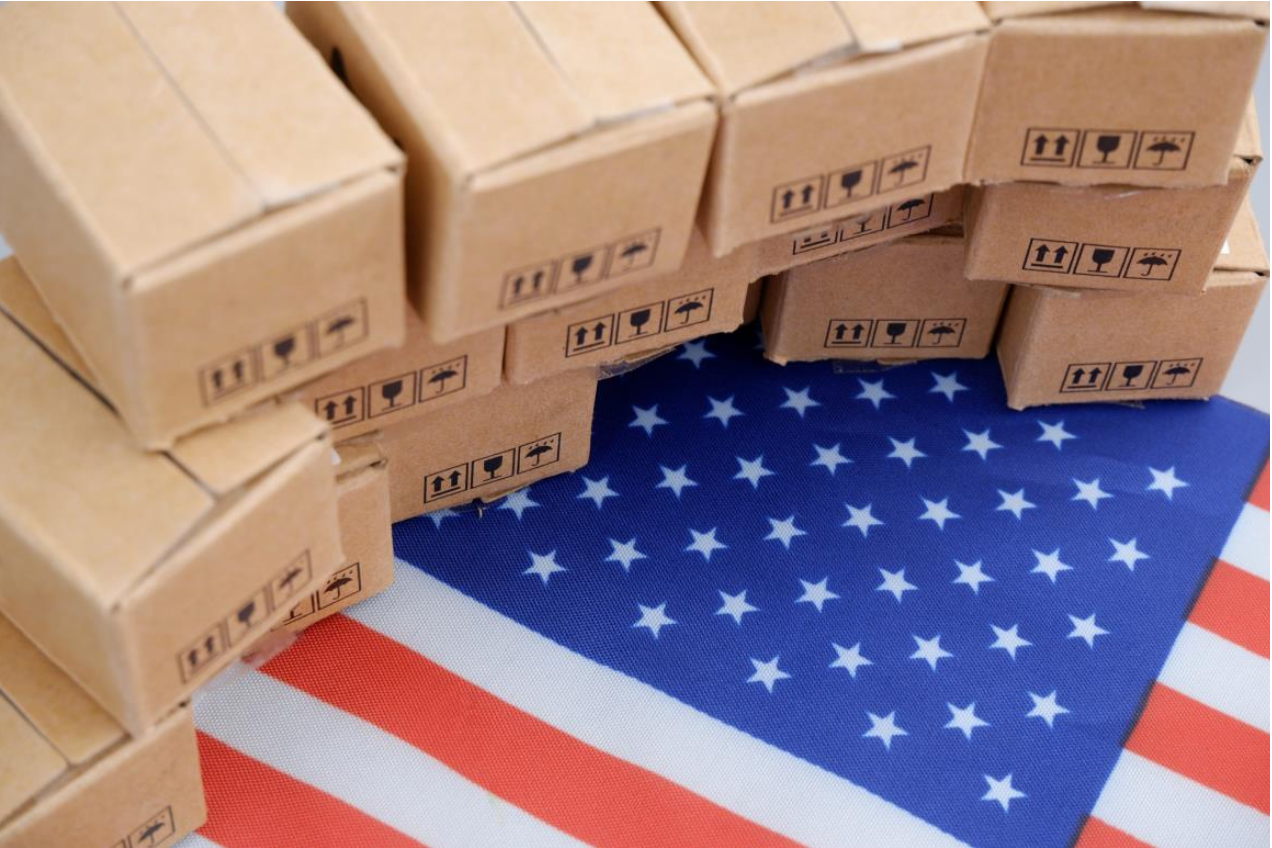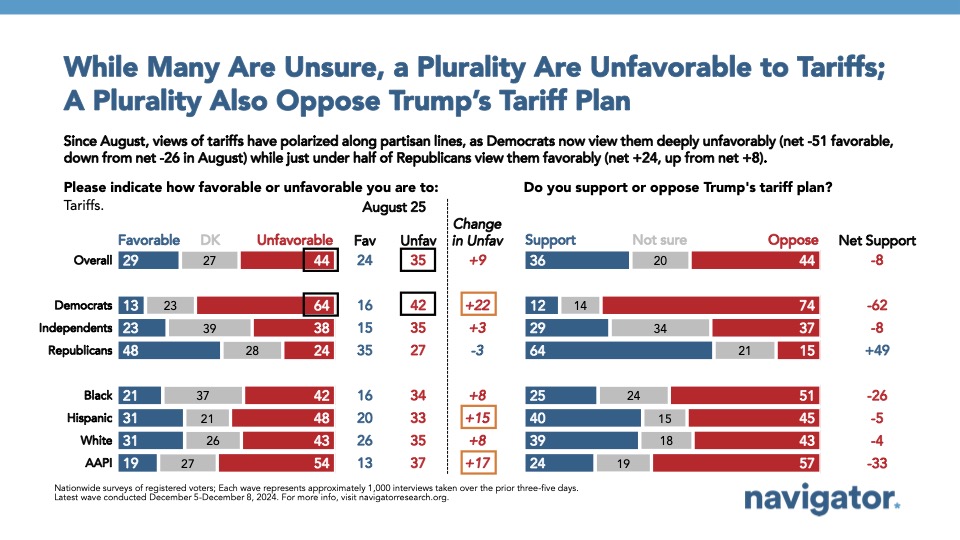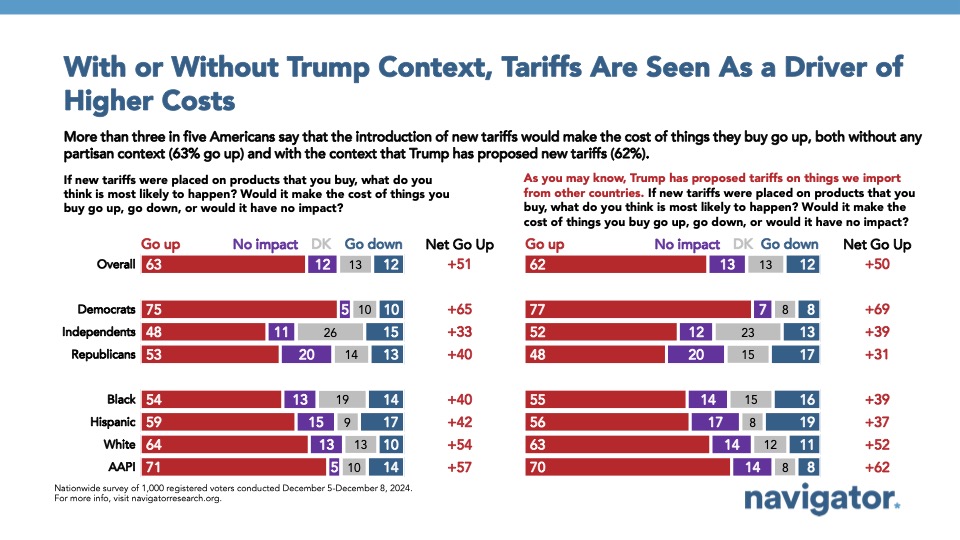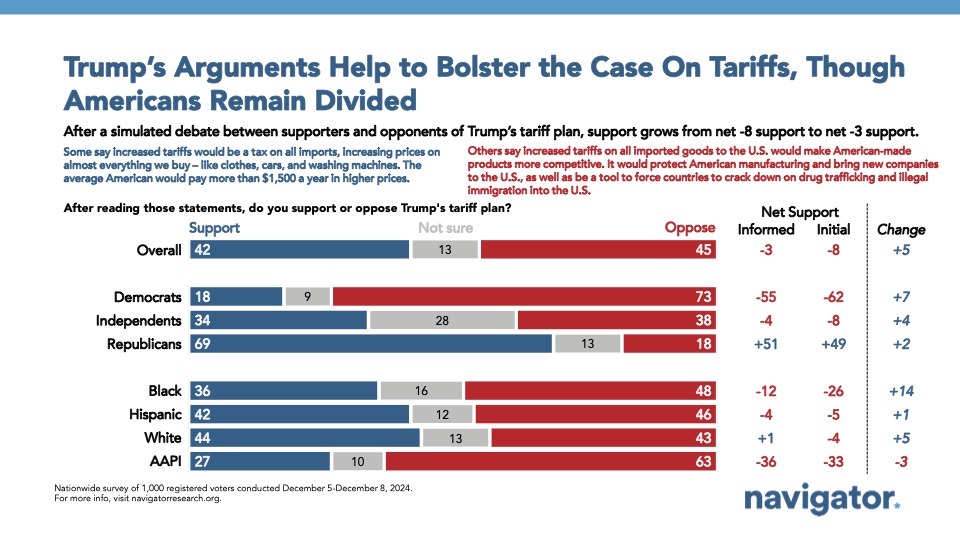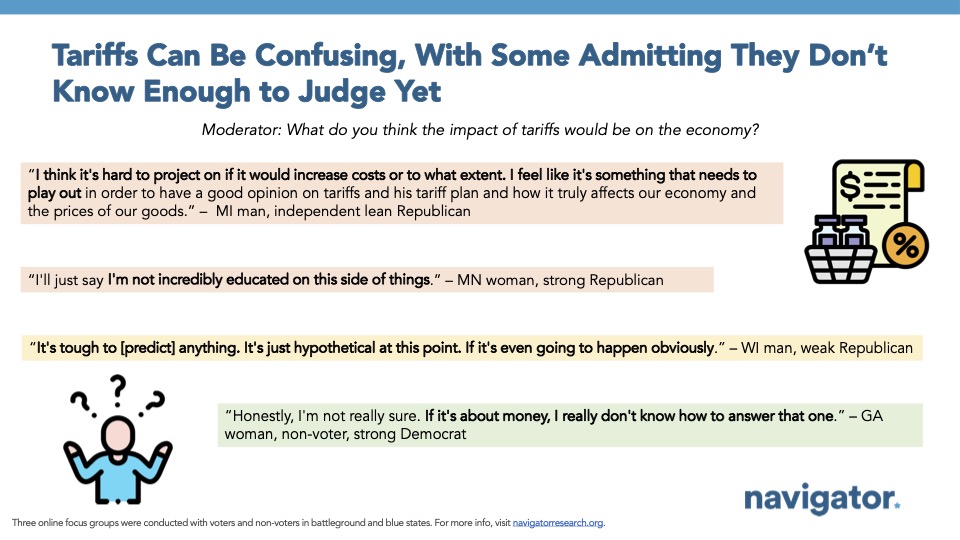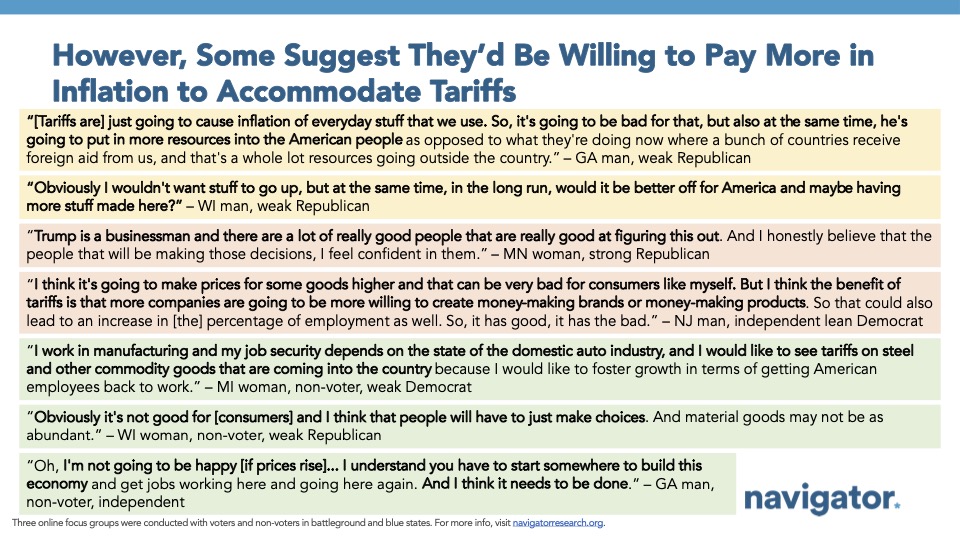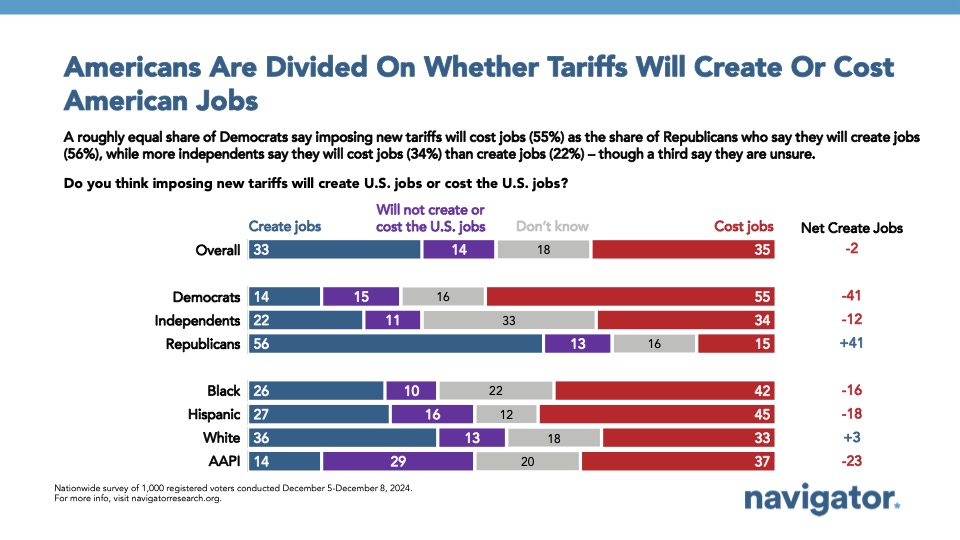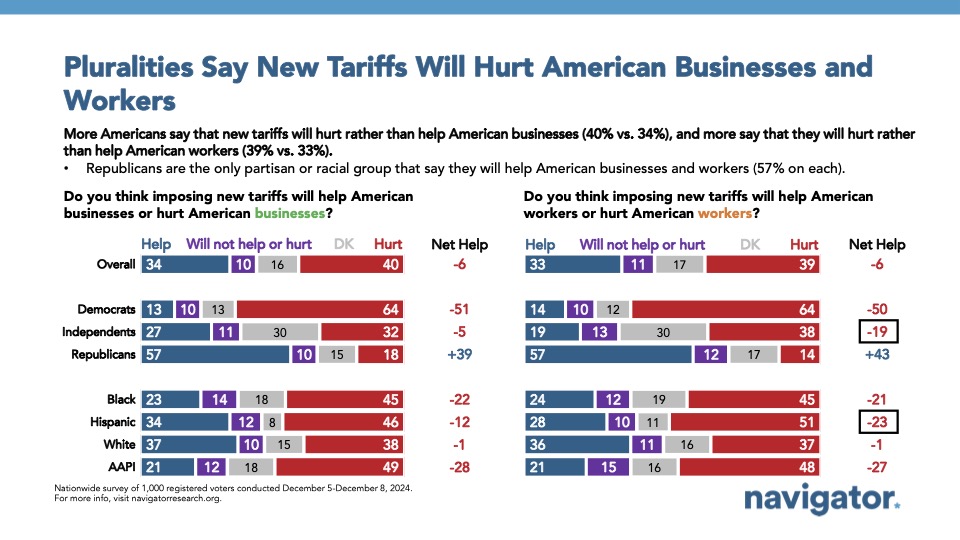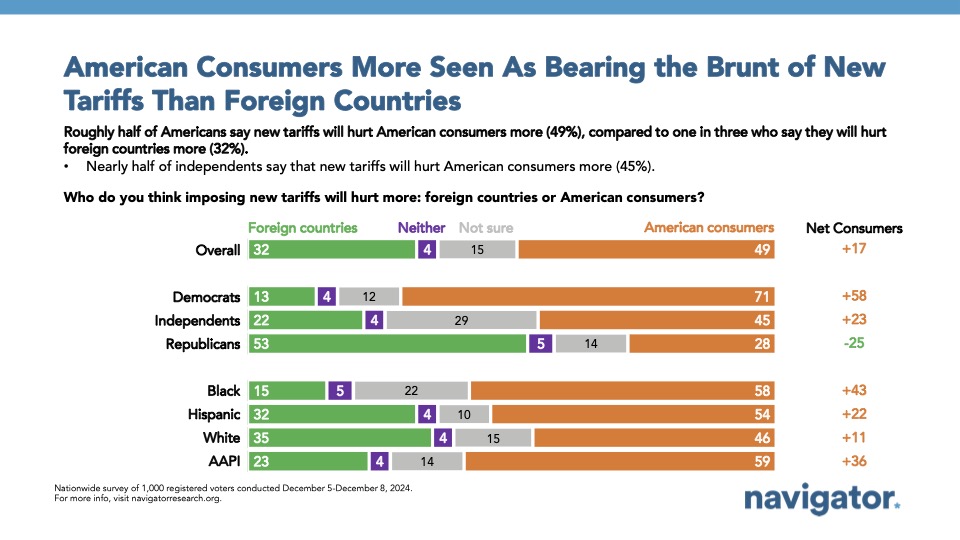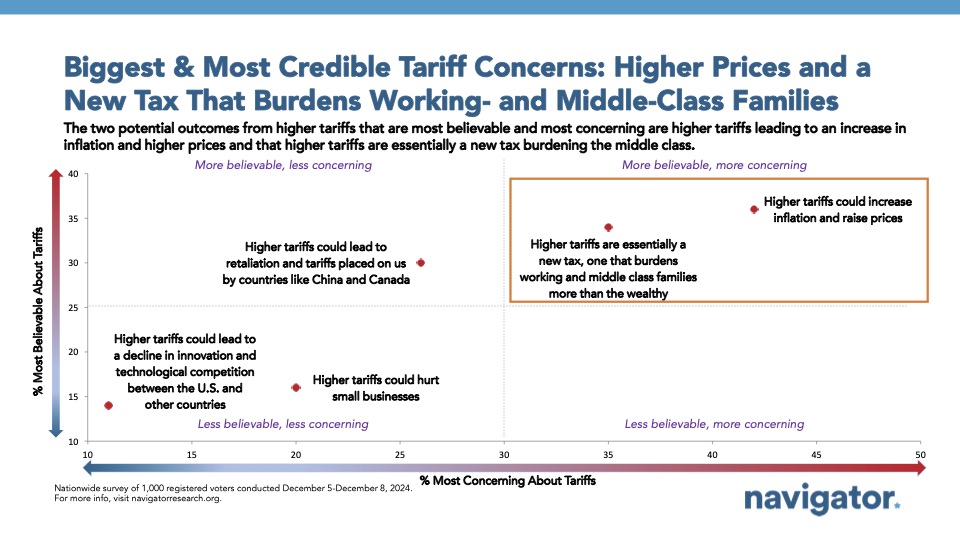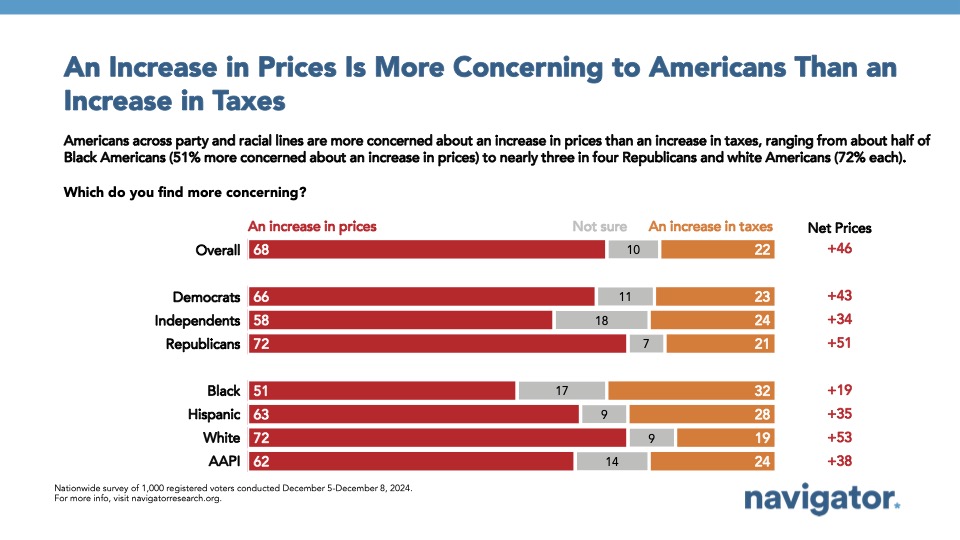Poll: Trump Tariffs
This Navigator Research report features data from a survey conducted on December 5 – 8* and additional findings from focus groups conducted on December 11th** among new Trump voters and non-voters on the latest perceptions of Trump’s tariff plan, including support for new tariffs, what Americans see as the most likely outcomes of new tariffs, and who Americans believe will be the most impacted by new tariffs
A plurality of Americans oppose Trump’s tariff plan, with majorities seeing them as a driver of higher costs.
A majority of Americans are now familiar with tariffs (73 percent familiar), with a plurality viewing them unfavorably (net -15; 29 percent favorable – 44 percent unfavorable). Similarly, Trump’s tariff plan is viewed negatively, with a plurality of Americans opposing it by an 8-point margin (36 percent support – 44 percent oppose). Over three in five believe the introduction of new tariffs would make costs of things they buy go up (63 percent costs go up – 12 percent costs go down), and with the additional context that Trump has proposed new tariffs, an identical share still believe costs will increase (62 percent costs go up – 12 percent costs go down).
Non-college educated Americans are less likely than college educated Americans to believe tariffs will increase the costs of things they buy (non-college; 58 percent costs increase – 13 percent costs decrease, college; 73 percent costs increase – 10 percent costs decrease).
Reminder:
The framing of tariffs matters a great deal: highlighting that a 10 percent tariff on all imported goods would mean that “the average American would pay more than $1500 a year in higher prices” leads a majority to oppose tariffs (net -28; 27 percent support – 55 percent oppose).
Trump’s argument helps to bolster the case for tariffs, though Americans remain divided.
After a simulated debate between opponents of Trump’s tariff plan who say: “some say tariffs would be a tax on all imports, increasing prices on almost everything we buy – like clothes, cars, and washing machines. The average American would pay more than $1500 a year in higher prices” and supporters of Trump’s plan: “increased tariffs on all imported goods to the U.S. would make American-made products more competitive. It would protect American manufacturing and bring new companies to the U.S., as well as be a tool to force countries to crack down on drug trafficking and illegal immigration into the U.S.” support grows from net -8 to net -3 (42 percent support – 45 percent oppose), though 13 percent say they are unsure.
In focus groups, voters express openness to Trump’s tariff plan, even if it might cause prices to increase in the short term. As a New Jersey new Trump voter said: “I think it’s going to make prices for some goods higher and that can be very bad for consumers like myself. But I think the benefit of tariffs is that more companies are going to be more willing to create money-making brands or money-making products. So that could also lead to an increase in [the] percentage of employment as well. So it has good, it has the bad.” A Wisconsin man similarly said: “Obviously I wouldn’t want stuff to go up, but at the same time, in the long run, would it be better off for America and maybe having more stuff made here? It’s tough to project anything. It’s just hypothetical at this point. If it’s even going to happen obviously.” A Michigan new Trump voter said it’s hard to know what will happen: “I think it’s hard to project on if it would increase costs or to what extent. I feel like it’s something that needs to play out in order to have a good opinion on tariffs and his tariff plan and how it truly affects our economy and the prices of our goods.”
Americans are divided on whether tariffs will create American jobs, but believe they will hurt American businesses and workers.
33 percent of Americans believe new tariffs would create American jobs, 35 percent believe they would cost jobs, and 14 percent believe they would neither create nor cost jobs. A majority of Republicans believe new tariffs would create jobs (56 percent create jobs – 15 percent cost jobs), while a plurality of independents (34 percent cost jobs – 22 percent create jobs) and a majority of Democrats (55 percent cost jobs – 14 percent create jobs) believe new tariffs would cost American jobs. New tariffs are also seen as hurting American businesses and workers, with pluralities by 6 point margins believing there would be negative impacts (American businesses; 40 percent hurt – 34 percent help, American workers; 39 percent hurt – 33 percent help).
Americans working blue collar jobs are the most likely economic group to believe new tariffs would help American businesses and American workers, though they are more likely to believe businesses would be benefitted over workers (American businesses; 40 percent help – 34 percent hurt, American workers; 37 percent help – 37 percent hurt).
American consumers are seen as bearing the burden of new tariffs, with an increase in inflation being the top concern.
By a 17-point margin, American consumers are seen as more likely than foreign countries to bear the burden of new tariffs (49 percent American consumers – 32 percent foreign countries). 42 percent of Americans listed an increase in inflation leading to higher prices as a top concern about tariffs, and 36 percent listed it as a top most believable concern. New tariffs being a new tax that burdens middle class Americans was the second most concerning and believable concern, with 35 percent listing it among their top concerns, and 34 percent listing it among their most believable concerns.
Republicans are the most likely to believe foreign countries will be the most affected by new tariffs (53 percent foreign countries – 28 percent American consumers), while independents (22 percent foreign countries – 45 percent American consumers) and Democrats (13 percent foreign countries – 71 percent American consumers) are less likely.
Americans are far more concerned about an increase in prices than an increase in taxes, with over two in three being more concerned about an increase in prices (68 percent increase in prices – 22 percent increase in taxes), including 72 percent of Republicans, 66 percent of Democrats, and 58 percent of independents.
